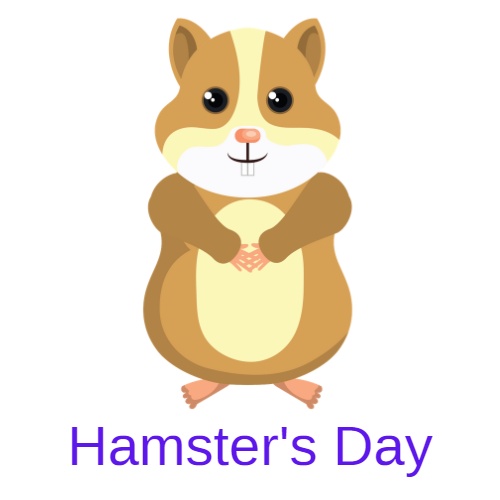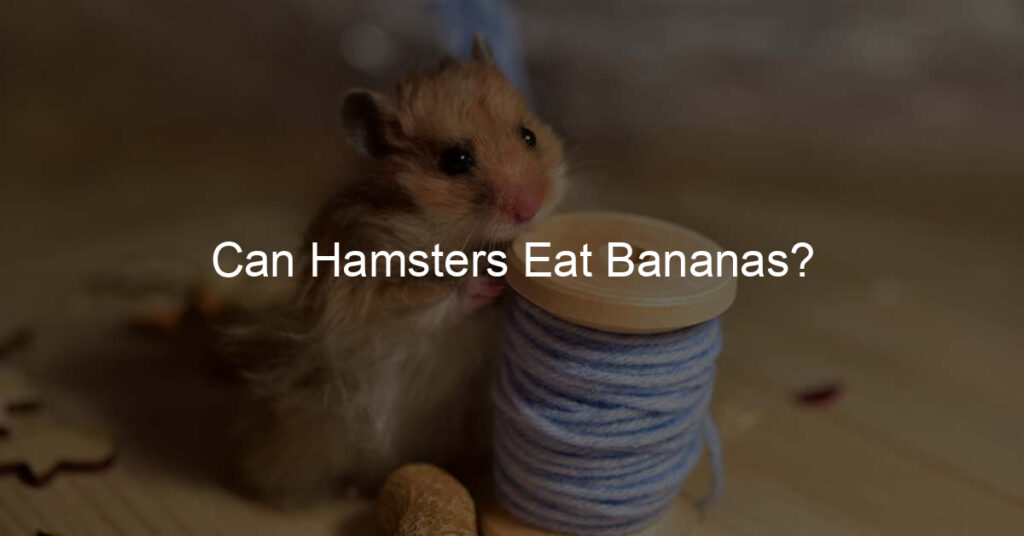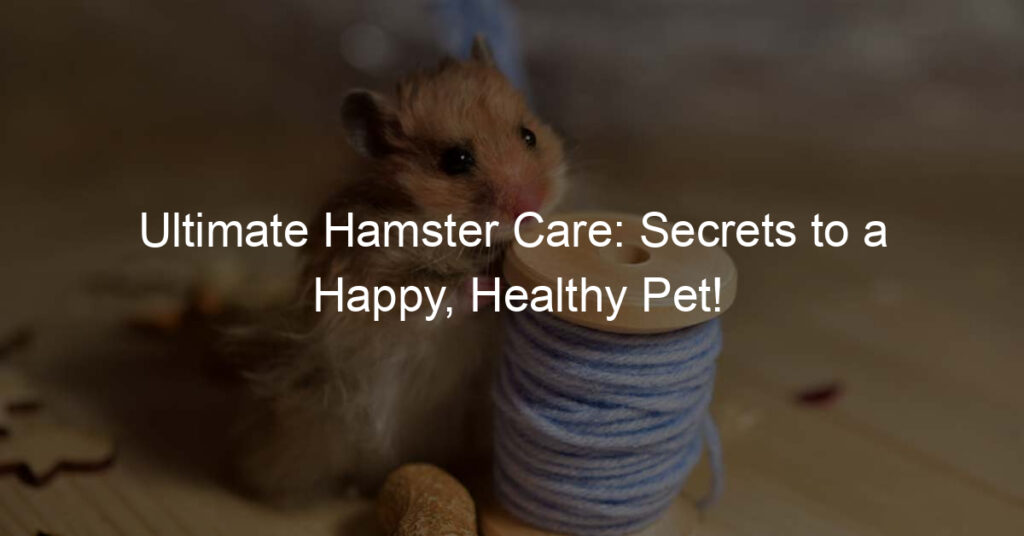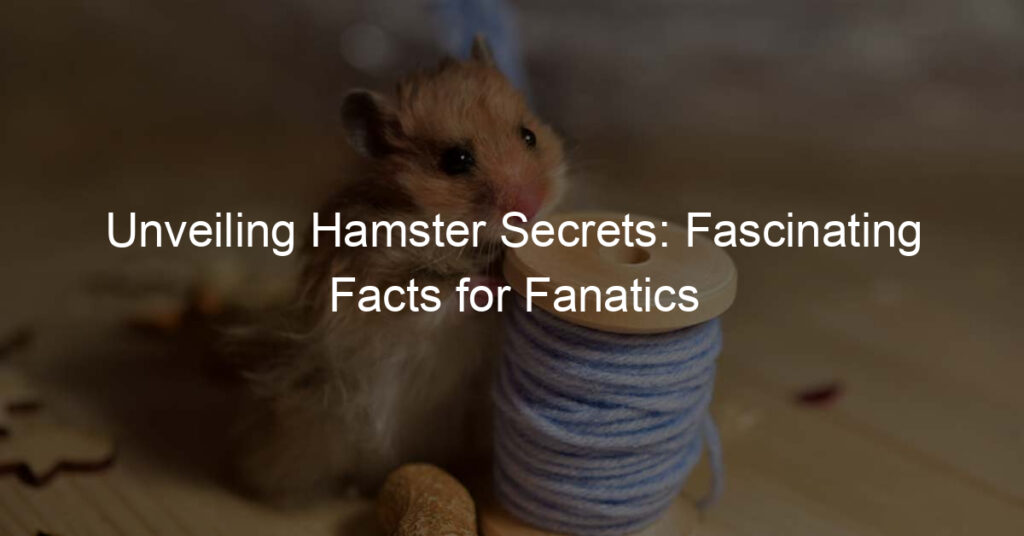Hamsters are popular pets, and one of the most common questions that arise for their owners is can hamsters eat bananas.
The answer to this question is yes – hamsters can eat bananas, but there are a few essential considerations to keep in mind. Bananas offer a range of vitamins and minerals, as well as fiber, making them a nutritious treat for hamsters when given in moderation.
That being said, the high sugar content in bananas can cause issues for hamsters, so it’s crucial to balance their diet accordingly.
Understanding a hamster’s dietary needs and how bananas can impact their health is key to providing a nutritious and enjoyable diet.
Additionally, knowing how to safely feed bananas to hamsters, as well as alternative fruits that can be given, will allow you to care for your pet with confidence while keeping them healthy and happy.
Different hamster breeds may also have varying tolerances when it comes to consuming bananas, so ensuring you are aware of the unique requirements of your hamster’s breed is essential.
Key Takeaways
- Hamsters can eat bananas in moderation due to their nutritional benefits.
- Excessive consumption of bananas may lead to health issues for hamsters.
- Providing a variety of fruits and knowing breed-specific needs are essential for a balanced hamster diet.
Can Hamsters Eat Bananas?
A hamster’s diet plays a crucial role in maintaining its health and well-being. To ensure that your furry friend gets all the essential nutrients, a balanced diet rich in vitamins, protein, and fiber is a must.
Hamsters primarily need carbohydrates for energy, and a good source of these nutrients comes from fresh vegetables and fruits. Veggies, such as leafy greens and cucumber, provide them with much-needed vitamins, while fruits like bananas offer carbohydrates and other essential nutrients.
Protein is another important component in a hamster’s diet, which helps build and repair their bodies. Opt for quality protein sources to keep them healthy, like lean meats, bugs, and insects.
This ensures that they get enough protein without consuming a calorie-heavy diet that could lead to obesity.
In addition to carbohydrates and protein, fiber is essential for a hamster’s digestive health. It helps maintain proper gut function and promotes the growth of good bacteria in the digestive system.
Fruits and veggies, such as bananas, play an essential role in providing adequate fiber to a hamster’s diet.
To summarize, a well-rounded diet that includes a variety of veggies, fruits, and proteins will ensure that your hamster gets all the necessary nutrients to maintain a healthy and happy life while preventing potential health issues.
So, including bananas as part of your hamster’s dietary plan can be a tasty and nutritious treat when given in moderation.
Health Impact of Bananas on Hamsters
Bananas can be a nutritious addition to a hamster’s diet, as they contain essential vitamins and minerals, such as potassium, magnesium, vitamin C, and vitamin B6.
These nutrients play important roles in various aspects of hamster health, including organ functioning, cardiac health, and bone density.
A significant benefit of bananas for hamsters is their high fiber content, which can help improve digestion and maintain a healthy gut. Further, the antioxidants found in the fruit can support the hamster’s immune system and combat free radicals in their bloodstream.
However, it’s important to be mindful of the sugar content in bananas, as excessive intake can contribute to obesity in hamsters. To ensure your hamster enjoys the health benefits of bananas without the risk of weight gain, it’s best to feed them this fruit in moderation.
Although the banana peel is not toxic to hamsters, it is not a recommended food item due to the potential presence of pesticides and limited nutritional value. Sticking to the banana flesh for treats is a safer option for your furry companion.
In summary, incorporating bananas into a hamster’s diet can provide essential nutrients, including vitamins and minerals, that contribute to their overall health.
The key is to offer bananas in moderation to prevent potential obesity and ensure a balanced diet.
The Benefits and Risks of Feeding Bananas to Hamsters
Bananas can be a delicious treat for hamsters when fed in moderation. They offer several health benefits, but like any other food, they should be given with caution to prevent potential risks.
One of the key benefits of feeding bananas to hamsters is their high fiber content. Hamsters need fiber for proper digestion and a healthy gut.
This nutrient is essential for supporting good bacteria in a hamster’s digestive system. Bananas are a good source of fiber for hamsters, providing the necessary nutrients to help maintain their gut health.
Additionally, bananas grown in the US help support the hamster’s immune system. They contain antioxidants that fight free radicals, diseases, and infections.
These fruits also aid in combating tumor or cancer cells and help in maintaining the hamster’s eyes and fur while boosting digestion.
However, there are some risks associated with feeding bananas to hamsters. One of the main concerns is the high sugar content in bananas, which could potentially lead to diabetes or weight gain in your hamster.
To prevent such issues, it’s essential to limit their intake of bananas. A safe serving size is 1 teaspoon worth of banana for a regular-sized hamster or 1/4 to 1/2 teaspoon for a dwarf or smaller-sized hamster.
It’s best to offer bananas as a treat no more than 1-2 times per week.
Another potential risk is the presence of pesticides on the skin of the fruit. Always wash the banana thoroughly before offering it to your hamster, and consider purchasing organic bananas to minimize this risk.
Bananas can be a safe and beneficial treat for your hamster when fed in moderation. Keep an eye on their intake to avoid risks like diabetes or weight gain, and make sure to provide a clean, pesticide-free fruit.
Regularly feeding your hamster a balanced diet with a wide variety of fruits and vegetables will help ensure their overall health and happiness.
Right Way to Feed Bananas to Hamsters
Feeding bananas to your hamster can be a delightful experience for both of you. When it comes to offering these tasty treats, it is crucial to follow some simple guidelines to ensure the health and safety of your furry friends.
First and foremost, it is important to remember that bananas should be offered as an occasional treat and not as a staple part of your hamster’s diet.
Moderation is key because bananas contain a lot of sugar, which can be harmful to hamsters if consumed in excess.
When you decide to treat your hamster with a banana, make sure to prepare a small portion. A thin slice or a small cube is the perfect size for your little pet.
It is essential to remove the peel, as it can prove challenging for hamsters to digest, and also avoid offering any spoiled or overly ripe banana pieces.
Bananas are not the only fruit you can treat your hamster with. Other options like pears and blueberries can also be fed in moderation. Just like with bananas, peel and core the pears, and ensure that blueberries are thoroughly washed before offering them to your pet.
Lastly, while bananas and other fruits provide essential nutrients and are safe for hamsters, it is essential to be cautious when introducing new human foods to their diet.
Always consult your veterinarian or a reliable source if you are unsure whether a specific food item is suitable for your hamster.
Following these guidelines can treat your hamster to the occasional banana while ensuring their well-being is maintained.
Alternatives to Bananas for Hamsters
While bananas can be a treat for hamsters, it’s essential to offer them a variety of other nutritious foods to promote a balanced diet.
Here are some alternatives to bananas for your hamster, with the majority being fruits, vegetables, nuts, seeds, and grains.
Fruits and vegetables are a great way to provide your hamster with essential nutrients and vitamins. Carrots and watermelon are both popular options that can be given in moderation. Carrots are rich in vitamin A and fiber, while watermelon provides hydration and vitamins.
Always remove any seeds from fruits and vegetables before giving them to your hamster, and avoid offering sugary or citrus fruits, as they may upset their stomach.
In addition to fruits and vegetables, hamsters enjoy various nuts and seeds. These provide healthy fats and proteins to support their growth and energy levels.
Good choices include sunflower seeds, pumpkin seeds, and small pieces of unsalted, unseasoned nuts like almonds or hazelnuts. However, nuts and seeds should be given in moderation due to their high fat content.
Grains are another important element of a hamster’s diet. Whole grains like brown rice, oats, and barley can be cooked and given to your hamster, offering them carbohydrates for energy and additional fiber for digestion.
Grains should always be cooked and cooled before serving, making them easier to digest.
Besides fruits, vegetables, nuts, and grains, it’s essential to provide your hamster with a balanced commercial diet. Pellets are available at pet stores and are designed to meet their nutritional needs.
These pellets should form the basis of their diet, with fresh foods provided only as occasional treats.
Other supplemental food sources for your hamster can include timothy hay, which provides essential dietary fiber, and protein-rich foods like insects. Feeding mealworms or crickets occasionally can offer an additional protein source for your hamster.
Always remember to provide fresh water daily for your hamster and watch for signs of unhealthy eating habits or reactions to new foods.
Introduce any new food gradually to avoid upsetting your hamster’s digestive system, and ensure they maintain a balanced and varied diet.
Suitability of Bananas for Different Hamster Breeds
Hamsters are popular pets and come in various breeds, each differing in size and characteristics.
When it comes to feeding bananas to hamsters, the breed plays a significant role. Let’s take a look at the suitability of bananas for some common hamster breeds.
Syrian Hamsters: Also known as teddy bear hamsters, Syrian hamsters are the largest breed, typically measuring five to seven inches in length. They can safely eat bananas in moderation, as these fruits provide essential vitamins and minerals. However, it’s crucial to balance their diet with pellets and other vegetables or fruits.
Dwarf Hamsters: This category includes several smaller breeds, such as Roborovski and Campbell’s hamsters. Dwarf hamsters can also eat bananas, but given their smaller size, it is essential to provide them with smaller portions. A tiny piece of banana can suffice as an occasional treat, avoiding overfeeding, which may lead to health issues.
Chinese Hamsters: Smaller than Syrians but larger than most dwarf hamsters, Chinese hamsters are another breed enjoying bananas in moderation. Despite their slightly larger size compared to dwarf hamsters, it’s still crucial to monitor their portion size and frequency of banana treats, balancing it with other nutritious food options.
Regardless of the hamster breed, bananas are suitable as an occasional treat. Ensuring a balanced diet that includes hamster pellets, seeds, and other vegetables or fruits is vital for the health and well-being of these lovable pets.
Keep in mind the size differences among breeds when portioning banana treats to cater to individual hamsters’ nutritional needs.
Commercial Hamster Foods vs. Fresh Fruits
Hamster owners may wonder about the ideal diet for their furry friends and how to balance commercial hamster food with fresh fruits.
Let’s examine the differences between the two.
Commercial hamster foods are specifically designed to meet a hamster’s nutritional needs. These foods usually consist of a mix of seeds, pellets, grains, and some dried vegetables.
To ensure a balanced diet, these products often include added vitamins and minerals that hamsters require to maintain good health. When purchasing commercial hamster food, it’s essential to look for a high-quality, well-rounded option without artificial additives.
On the other hand, fresh fruits can be a delightful treat for hamsters and provide a valuable source of vitamins and fiber. Some safe options for hamsters include apples, bananas, blueberries, and cantaloupe.
However, it is crucial to note that fresh fruits should only be given in moderation, as they contain higher levels of sugar compared to other food items in their diet.
There are pros and cons to both feeding options. Commercial hamster foods provide a balanced diet for the animals but may contain additives or lack the same level of nutrients found in fresh fruits.
Fresh fruits offer a natural source of vitamins and fibers but can be high in sugar and should not make up the majority of a hamster’s diet.
To find the best balance, consider providing a base of commercial hamster food and supplementing it with occasional treats of fresh fruits.
For example, adding a small piece of banana or apple once or twice a week will give hamsters the much-needed variety and nutritional boost while still ensuring that they receive a balanced diet from their primary food source.
Remember, moderation and balance are key when offering fresh fruits to hamsters. It’s important to carefully monitor their intake and adjust their diet as needed to ensure they remain healthy and happy.
Common Queries About Hamsters and Bananas
Many hamster owners have questions about feeding their pets bananas and other related treats. In this section, we’ll address some of these common queries in a friendly and informative manner.
Bananas are a wonderful source of essential nutrients for hamsters, such as potassium, fiber, vitamins, and magnesium. Including a small piece of banana in your hamster’s diet can help support their cardiac health, improve their digestive system, and ensure the proper functioning of their organs.
However, it’s important to note that bananas should be fed in moderation. Hamsters have a sensitive digestive system, and the high sugar content in bananas may cause problems when consumed in large quantities.
To prevent any adverse effects, it’s best to feed your hamster small amounts of bananas as an occasional treat.
When it comes to feeding your hamster banana-based products like banana peels, banana chips, or dried bananas, the same principles of moderation and portion control apply.
While banana chips and dried bananas can be fed as occasional treats, it’s important to monitor the sugar content, especially in store-bought varieties, as these may contain added sugars.
As for banana peels, they can be a bit tough and fibrous, making them harder for your hamster to chew and digest. It’s best to stick with the softer and more easily digestible flesh of the fruit.
Apart from bananas, it’s essential to provide your hamster with a variety of fresh foods for a balanced diet. Grapes, however, should be avoided, as they can be toxic to hamsters.
On the other hand, cucumbers and water-rich vegetables can be great additions to their diet and help keep them well-hydrated.
In summary, feeding your hamster bananas can be beneficial as a source of essential nutrients, but moderation is key.
Always consider your pet’s dietary needs and provide a variety of other fresh foods for optimal health.
Frequently Asked Questions
Can bananas be given to Syrian hamsters?
Yes, bananas can be given to Syrian hamsters as they have a low risk of diabetes. They can safely consume bananas twice a week but do not give them too much, as excessive consumption could lead to obesity and other health issues.
What other fruits can be fed to hamsters besides bananas?
Hamsters can also enjoy other fruits such as apples, pears, blueberries, and strawberries, but always remember to remove any seeds or pits before giving them to your hamster.
Keep in mind that fruits should only be offered as occasional treats and not as a regular part of their diet.
Are there harmful effects of feeding bananas to hamsters?
Feeding bananas to hamsters can be harmful if done excessively, as they are high in sugar content and can cause obesity and other health problems.
Also, some breeds of hamsters, such as Chinese, Russian Campbell white dwarf, and winter white dwarf hamsters, are highly prone to diabetes and should be given bananas less frequently or in smaller quantities.
Do hamsters like eating bananas or other fruits more?
Hamsters may have different preferences when it comes to fruits, so it’s best to experiment with small amounts of various fruits and observe which ones your hamster likes more.
Just remember to always give fruits in moderation and continue providing a balanced diet that meets all their nutritional needs.
Are there certain hamster breeds that should avoid bananas?
Chinese, Russian Campbell white dwarf and winter white dwarf hamsters are more prone to diabetes and should be given bananas less frequently or in smaller quantities.
Monitor your hamster’s health and consult with a veterinarian if you have concerns about their diet or specific breed-related restrictions.
How often and what amount of banana can a hamster consume?
Roborovski and Syrian hamsters can have twice-weekly banana servings, while other breeds prone to diabetes should consume bananas less often or in smaller amounts.
When giving bananas to your hamster, provide a small piece, roughly the size of a fingernail, to avoid overfeeding and prevent potential health issues.








